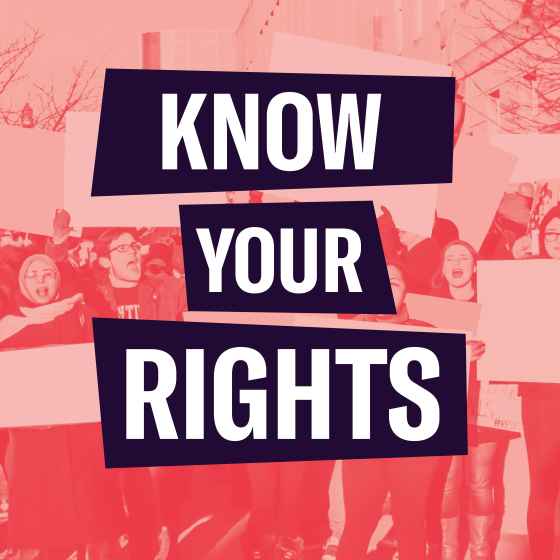By M. Marlay
Campus News
On February 18th, the Queens College Urban Studies Department organized an event for students titled Know your rights: Preparing and supporting Immigrant Students. The purpose of this event was to give Immigrants at Queens College the information they may need to know in case they have a run in with Immigration and Customs Enforcement, as well as current immigration policies. This was a public event meant to inform only and was not a replacement for legal advice regarding individual cases.
One of the main speakers at this event was Elinor Rahmani, who is an Attorney at Citizenship Now! This organization offers free, high-quality, and confidential immigration law services. They can help people become United States Citizens as well as help assess whether they qualify for legal benefits.
Under the Trump administration the Department of Homeland Security had expanded, expedited removal. Expedited removal is a process by which a person within the United States, not at the border, can be quickly removed from the country without a trial or a lawyer.
It was stated in the event, that in order to avoid facing expedited removal you need to be able to prove that you have been inside the United States for at least two years. To prove that you’ve been here for that amount of time, it might be recommended to carry physical photocopies of documentation and not just pictures on your phone.
It was also discussed if Immigration and Customs Enforcement (ICE) officer approach your home to request to see the federal warrant with a judge’s signature that is required for them to enter your home. It is important to note that there is a difference between a judicial warrant and an administrative warrant. Administrative warrants can be issued by an Immigration and Customs Enforcement official but does not give them the right to enter a person’s house without permission.
A judicial warrant will give the specific address and time of search, will be signed by a Judge, and will have the words, “United States District Court” at the top. The door should remain shut until you see the warrant, which can be passed through a window or under the door.
Immigration and Customs Enforcement is also allowed to misidentify themselves in order to gain permission into your house.
Another change that has come into effect under the current administration, is that places which were previously safe for immigrants such as churches, schools, and courts. This means that Immigration and Customs Enforcement officers are now able to enter these places and arrest and/or detain immigrants in these places, as well as all public spaces.
It was stated that if you are in a public space and are approached by Immigration and Customs Enforcement officers, you should ask if you are free to go, and if you are not, you should express that you wish to exercise your right to remain silent. The only information that you might want to give them is whether you have any childcare or medical needs, and to request an attorney. It was also emphasized that you should not show them any foreign ID’s.
It was also mentioned that it is important to have money available for a bond if you can, ensure that family members know your alien number, and that you have a designated guardian in the event of separation from your children if you have any. Free non-judicial documents in which you name your children’s designated guardian is, in case of detention or deportation can be found at https://planningwithparents.commons.gc.cuny.edu.
According to the website, “This… came about from a project started in 2017 by CUNY Law School alums, professors, students, and other advocates and activists to help undocumented parents plan for their children and families in response to the threat of detention and deportation.”
As for the police, in the state of New York, they are technically only allowed to detain you if they have a reasonable suspicion of you committing a crime or are involved in a crime in some way. It is also not a requirement that you show your ID to the police; however, it should be noted that if they cannot identify you can also be detained.
For those worried about whether Immigration and Customs Enforcement has been on any CUNY campus’, it should be noted that according to Bronx Community College, “It has long been and continues to be CUNY policy not to allow immigration enforcement officials to enter its campuses except to the extent required by law.” Meaning that they still will require a warrant signed by a federal judge for them to come onto campuses or to obtain any personal information regarding students. However, if you are made aware of an Immigration and Customs Enforcement raid taking place in New York City you can call the Immigrant Defense Project at (212) 725-6422 to report it. The Immigration and Customs Enforcement detention locator can be used to find adults in Immigration and Customs Enforcement custody or go through the local Immigration and Customs Enforcement office. For information regarding a detained minor, you can call (718) 688-8264 or (718) 688-8270. CUNY students should also keep an eye out for other events like this one on their campuses.








I’m impressed with how you presented this topic.
I’ve been looking for information like this—thank you!